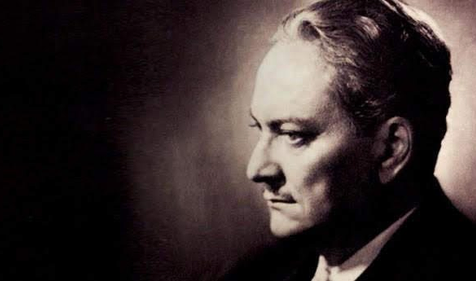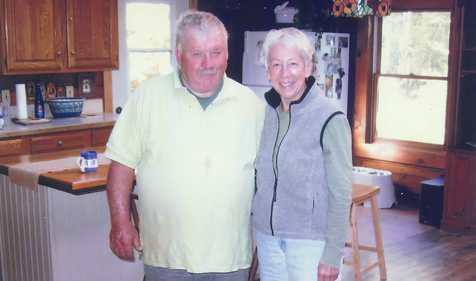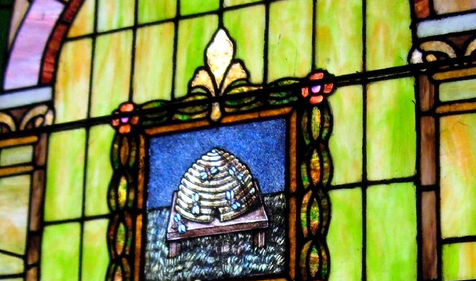Children’s Dyslexia Center (CDC) Director Lynda Pinaud was honored for her nearly three decades of service at the Greater Boston Center and presented with the Harry S. Truman Medal for distinguished service. Read on to learn about her incredible contributions to the CDC.
By Bridget Steele, Assistant Director of Charities
Scottish Rite Charities’ recent 2022 Giving Tuesday Telethon concluded with a very special recognition.
Children’s Dyslexia Center Director Lynda Pinaud was honored for her nearly three decades of service at the Greater Boston Center and presented with the Harry S. Truman Medal for distinguished service by Sovereign Grand Commander Peter J. Samiec, 33°.
CDC Director of Operations David Sharkis, 33°, also shared a moving tribute to Mrs. Pinaud, praising her for setting the example in establishing a safe and caring learning experience for students. “Through the children you’ve tutored and the teachers you’ve trained, you have impacted the lives of hundreds of students and their families,” he told her.

The honor was well deserved. This June marks 30 years since the first Center opened its doors in Newtonville, Massachusetts, and Mrs. Pinaud has been there from the very beginning. She is the longest-serving employee of the Children’s Dyslexia Centers and has no plans to stop anytime soon.
The idea to open the Greater Boston Center started as the dream of J. Philip Berquist, 33°, who was serving as the Scottish Rite Deputy for Massachusetts at the time. As the plans to launch the Center began to take shape, he needed an administrator to help run the office and shared the need with Mrs. Pinaud’s husband, Leonard, a fellow member of his lodge.
Mrs. Pinaud still recalls that initial meeting she had with Ill. Brother Berquist about getting the Center off the ground. “Phil had a stack of papers about three feet high, and he said, ‘Let’s go to the Center.’ We dragged the papers down, and when I arrived, there was a desk, and there was a chair, no bathroom, some papers, and a file cabinet. He said, ‘We’re going to open in three weeks,’ and I said, ‘No problem.’”
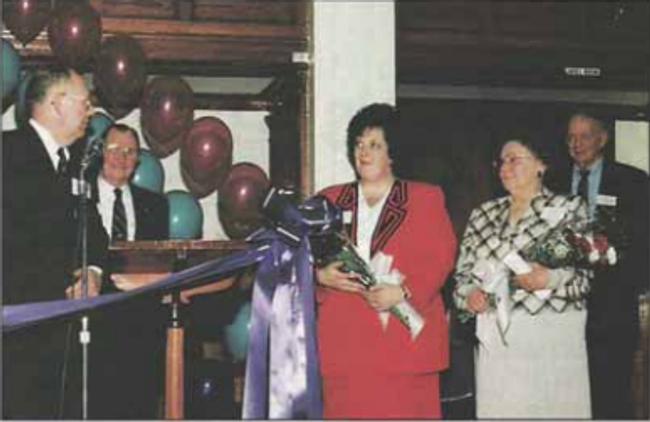
Pulling everything together in such a short time was nerve-wracking, but they made it happen. “We had our first little guy walk across the threshold in three weeks, and we’ve been going strong ever since.”
Over the years, the program has grown to more than 40 locations across the Northern Masonic Jurisdiction, and Mrs. Pinaud has seen quite a few changes since she first began. “We have taken such gigantic leaps from where we started. The program has evolved incredibly. We’ve learned so much more about the science of reading,” she said.
But she also said that at the heart of the program, its core work has remained the same. To this day, it continues to focus on helping children. “Children are still coming in with the same issues and the same problems. It’s still taking our time to work with these kids and letting them know that they’re not alone in this struggle, that they finally have a place they can come and be safe and learn,” Mrs. Pinaud said.
She shared that one of the most unique things about the CDC program and the way it operates is the one-on-one tutoring component for each child. Remarkably, every child receives a brand-new lesson designed exclusively for them each time they come to the Center.
“Every child is an individual. Every child has a different issue, so as you’re teaching, you have to be diagnostic. You have to be looking at that child and ask, ‘What is he missing? What is he not getting today?’ And then you have to be prescriptive in your next lesson, putting in those items that he was missing from the lesson before,” she explained.
This individualized approach helps contribute to the program’s success and is an ongoing process. “You have to reweave everything you have taught to a child over and over again: scaffolding your lessons, building on what you already know before. Every child gets his own very special lesson made just for him,” Mrs. Pinaud said.
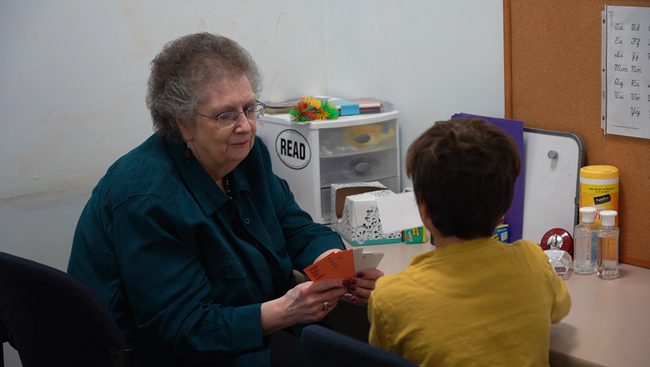
Being a part of the Children’s Dyslexia Centers for so long has had a profound impact on her own life, as she’s witnessed the struggles that children with dyslexia and their families face every day. “This has changed me incredibly. I’ve always had compassion for children, but when you see struggling children, it hurts you. When these little ones come, and they’re so depleted of thinking they can be anybody or anything, it just makes me so heartsick to see it. And over the years, I’ve come to understand them, and I’ve come to truly understand what the parents are going through.”
Mrs. Pinaud said that the children she helps have been the motivator to keep going for so many years. Some days a child will come in sad and badly shaken from a challenging day at school, and her goal is to turn that around before they leave.
“Every day you get up, you know you’re going to see a child with a different issue or a different problem. Maybe he’s had a horrendous day at school and is in a terrible mood. It’s motivating to be there and help them get out of that. Many times, I’ve sat on the floor with children crying and trying to boost their self-esteem and get them on their feet and back into their little classroom to do what they need to do.”
Mrs. Pinaud said her biggest hope for the future is always to reach more children, which she believes can be done most effectively by training more teachers in the methods needed to help children with dyslexia learn and grow. And ultimately, her wish is that there is no longer a need for the Children’s Dyslexia Center program as it currently functions.
“My big hope down the road is not to have any Centers at all that are dealing with dyslexic children. I’m hoping these children can be serviced in the schools, and maybe we put our energies into something else. That’s what I really hope someday will happen – that they get what they need when they need it, and they don’t have to come to a place like this. Even though I love these places, and I think they’re the greatest gift to some of these families, wouldn’t it be wonderful if the kids got what they needed in the schools when they needed it?”
Mrs. Pinaud estimates that she’s served close to 600 children over the years. They’ve gone on to become everything from scientists to nurses to architects and graphic artists, and she loves hearing updates from former students and their parents about how well they’re doing today. “It’s when the children realize that you’ve done something for them – that feels really good. That’s when this program gives back to you. I have a drawer full of letters from parents and children that have written me over the years thanking us for what we’ve done. They mean so much to me.”
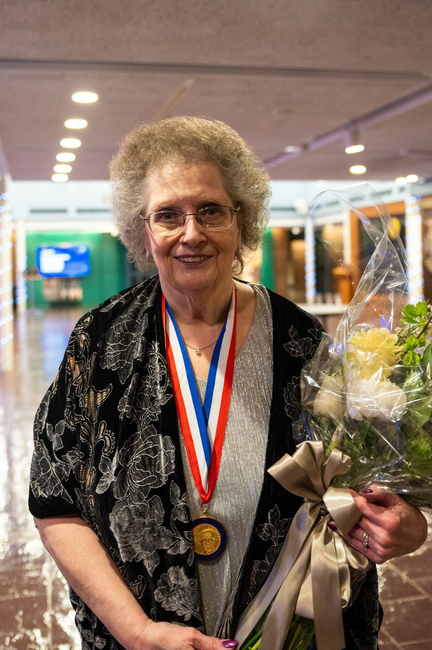
When asked what she thinks her legacy will be, Mrs. Pinaud said she doesn’t think much about it. Instead, she shared, “My husband would always say to me, ‘Make sure you leave this place better off than when you came here.’ That I feel like I have done. If I have done one thing to change one child’s life just a little bit, I feel I will have accomplished what I needed to accomplish.”
Related Stories
Discover additional Scottish Rite blogs and news on this topic.
-
Manly P. Hall: Philosopher, Mystic, and Freemason
Famous Masons
Read More about Manly P. Hall: Philosopher, Mystic, and Freemason
-
Supporting a Masonic Widow In Need
Charity
Read More about Supporting a Masonic Widow In Need
-
What Does the Beehive Mean in Freemasonry?
Degrees
Read More about What Does the Beehive Mean in Freemasonry?

